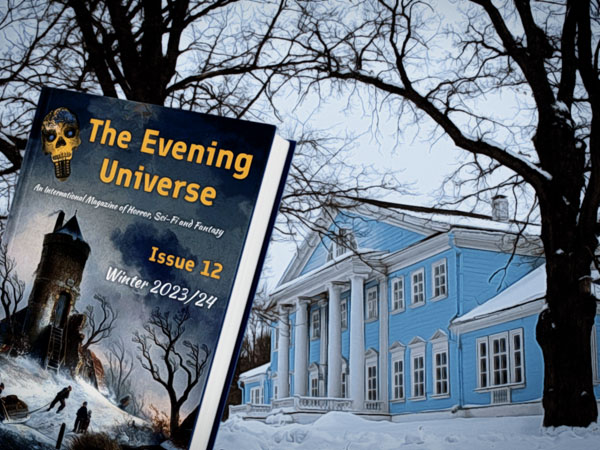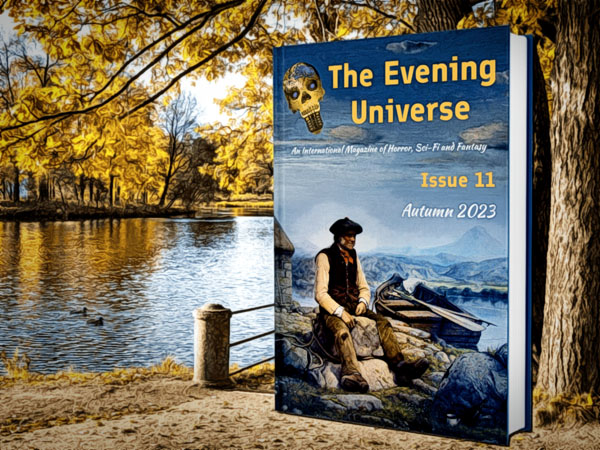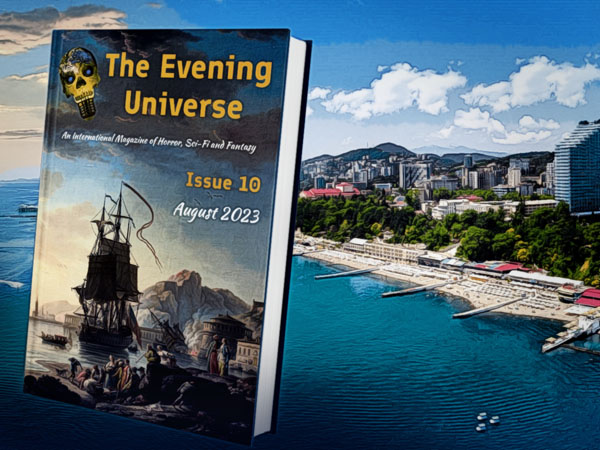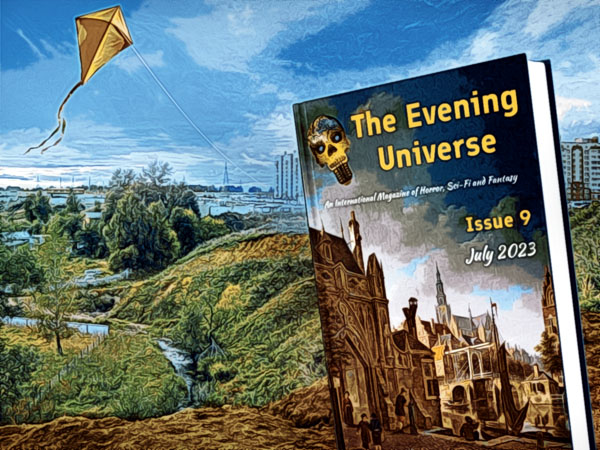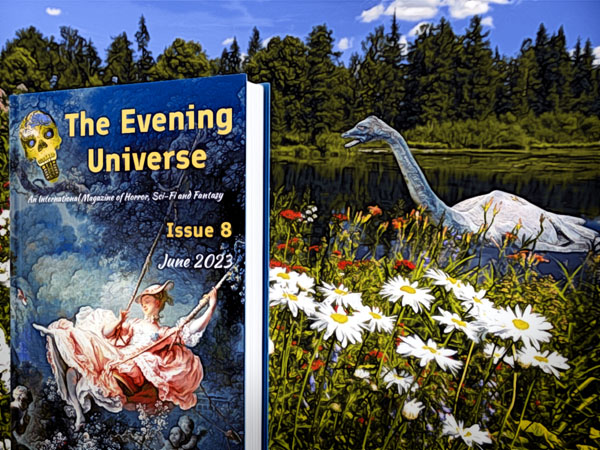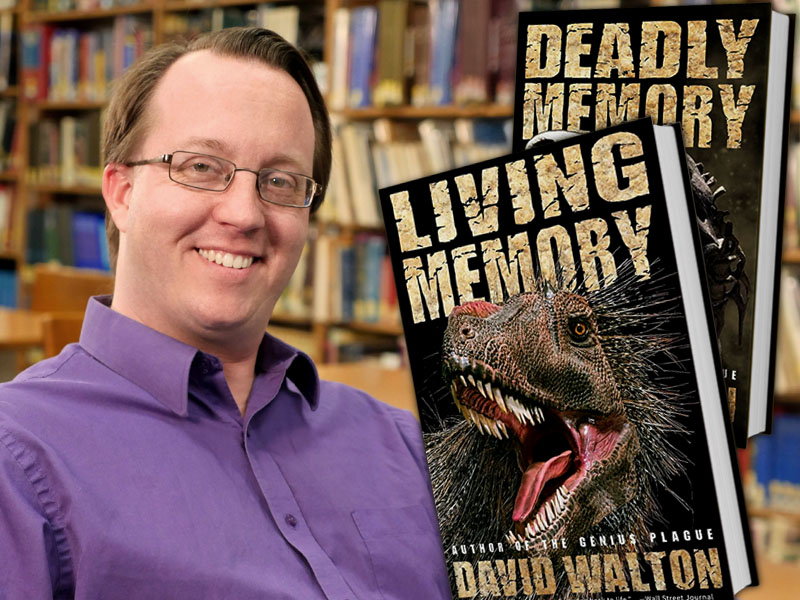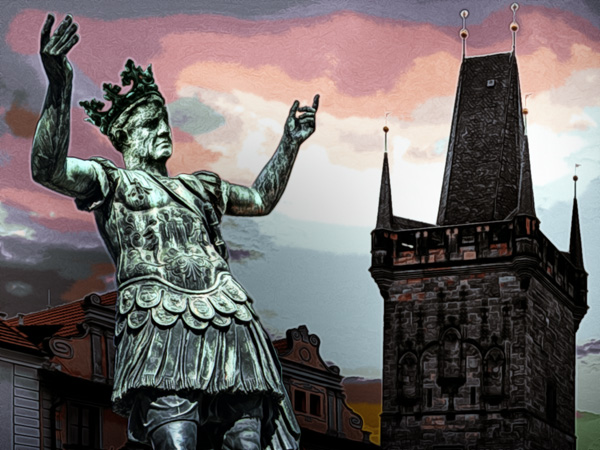
The Luminous Emperor brought great wealth and power to the city. He quelled rebellions in the heart of the empire which had threatened the capital city, and expanded the borders farther than his ancestors had even dreamed. Every territory which he conquered was promptly connected to the others with vast systems of roads and canals. Most important of all, he banished the strange Gods to the forests and dark places, and spread the worship of the orderly and safe state Gods all across the Empire.
And so, there was great distress when the Luminous Emperor’s slowly sickened and drew near to death. Some whispered that the strange Gods had found a way through the defenses of his palace and had cursed him for putting them away. Others said that this member of his court or that head priest had poisoned him in hopes of seizing the throne. Some even went so far as to implicate his ambitious, warlike son, the Emperor Elect, in plotting his death.
But with no evidence for such disturbing theories in the official records, it is wiser to conclude that no mind had planned the Luminous Emperor’s death. Rather, the former Emperor went to death as he had come into life: in his time. He accomplished with his life all that he desired, and having finished his work, quietly passed the nation to his son.
In favor of this theory is the fact, throughout the ten years leading up to his death, the Luminous Emperor built his tomb beneath the desert sands north of the city. He did not discuss the design of the tomb with anyone save his chief magician. Workers were brought by caravan into the desert blindfolded, and each worked on only one of its twisting and interlocked tunnels. It was said that the late Emperor’s tomb resembled a vast, underground labyrinth, or perhaps a mechanism, but no one, not even the archivist and the head priest, knew more than that.
The very day before he died, the Luminous Emperor announced that the great tomb had been completed. Upon discovering his father’s body, the Emperor Elect, now the Emperor, confirmed, that his father would be buried in it, in accordance with his wishes.
A month of mourning was proclaimed throughout the Empire and preparations began for the former Emperor’s internment. As part of the ceremony, as per tradition, those who had members in his personal court would be beheaded so that they might accompany him into the afterlife. This included his chief magician.
The night before, it is agreed that the new Emperor visited the former chief magician in his personal chamber. They spoke for some minutes. According to the young Emperor’s personal archivist, the conversation went as follows:
“The function of the tomb is a secret between you and my father,” the Emperor began. “I would not sully myself to ask for it, and I know you would not sully yourself to tell me. However, I must know enough of it to place you, my father, and his court in it safely. That much, you owe to the safety and glory of the Empire.”
But the magician replied, “I can tell you nothing of the tomb, least of all how to enter and leave it safely. I have sworn otherwise”
“Then you would endanger the men of your Empire and the sanctity of my father’s rest because of an oath to a dead man?”
“The tomb is already sealed,” the magician said. “And it will accomplish its purpose without your cooperation.”
“Then my father’s body does not need to be placed within the tomb?”
“If you were necessary to the tomb, the Emperor would have told you of it.”
The young Emperor was stung by this provocation. The title of Emperor had passed from his father to him; to return it to his father was to accuse him of illegitimacy. However, he held himself back, remembering that this was the magician’s last night, and a doomed man might do as he pleased.
There is another story of this conversation, one which is told in the chronicles of the young Emperor’s chief magician, who supposedly accompanied him to this meeting.
According to this version, the young Emperor offered life to the former chief magician in exchange for the secrets of the tomb. The magician explained that he wished to take the Emperor’s offer, but he had made an oath, not to the emperor, but to the tomb itself. Upon being urged by the Emperor, the chief magician attempted to form a name, but began to choke. It was found, upon his opening his mouth, that his mouth as well as much of his throat, had entered an advanced state of decay.
As this version of the story is discreditable to the Emperor, it must, thankfully, be considered apocryphal.
The chief magician was led into the public place the next day with the other members of the court. All of them were simultaneously beheaded as the sun reached its highest point in the sky. According to one rumor, there was only one irregularity in the affair, which was that the chief magician’s head did not bleed as the others did when it was cut off, but rather oozed something black and viscous.
As the blood dripped down the steps of the temple, the Emperor stood over the splayed corpses and raised his arms. Immediately, the crowd was quiet.
“There is one more thing to announce,” he proclaimed, his voice as booming and powerful as it ever was. “While my father is no longer with us in body, his power will never leave his beloved Empire. I hereby attest, that like his august ancestors, the First Emperor and the Wise Emperor, my father has not died, but has passed into Godhood. From this day on, the spirit of the Luminous Emperor will serve as a new state God!”
The crowd had just begun to applaud this triumphant announcement when an immense eagle flew over the city square. There, in front of the Emperor, his court and all of the people of the city, it gave a loud cry and was struck dead in the air by a bolt of lightning. The same moment that the lightning struck, as the people covered their eyes, the great silver sarcophagus burst open and fell off its place on the altar.
It lay there on the stairs, balanced on its side, and all the people could see that it was empty.
The Emperor immediately called the guard to empty the city square and see the people to their homes. The empty sarcophagus was carried away, into the temple. That evening, the city was full of hushed whispers about the unsettling omen.
The body of the dead bird was never recovered.
The next day, a messenger sent into the Northern deserts confirmed that the tomb built there was sealed, and its door could not be opened by the strength of one man. Already, the sands were beginning to cover the only doors to the tomb; the messenger was sure that within three days, the tomb would have vanished entirely.
He also reported that when he put his ear to the enormous granite door of the tombs, he could hear the sound of something very large and slow moving inside the tomb. He compared the sound to stone grinding against stone. The new chief magician had no explanation for this, and it was put down as a second omen.
Two omens in as many days was inauspicious at best. At worst, it suggested the action of a wild God.
The Emperor hired the Temple sculptor to produce a life size bronze cast of his father. This would stand in the city square, in front of the Temple. Its sheer scale would, he hoped, silence any anxiety and plant the new God firmly in the state pantheon.
Unfortunately, on the very day when his work was to be delivered to the foundry, the sculptor disappeared. His molds were discovered in his workshop next to a half-eaten bowl of soup, but the man himself was nowhere to be found.
The chief archivist records this conversation between the Emperor and his chief magician.
“Will the Emperor allow me to speak unfavorably?” the magician requested.
“Proceed.”
“I believe that the disappearance of the sculptor casts a negative light on his designs,” she began. “Producing them may not have the desired effect on the people, and there is the risk of further provoking a hostile power.”
“Nevertheless, it is necessary,” the Emperor answered. “The power you speak of is already provoked. Only that statue will contain it.”
“Will the Emperor allow me to reply?” the magician asked.
“I will not.”
Of course, there is another story of this conversation, one which is told in the record of the court musician, who was playing for the Emperor that day. According to this, the Emperor did offer permission to the chief magician to give her reply. The magician then approached the Emperor and whispered her answer into his ear. In response the Emperor became visibly angry and stormed away.
The next day, the chief magician was found dead, apparently of a sudden sickness brought on by the toxic air of one of the many odious substances she worked with.
Meanwhile, as the workshop prepared for the casting of the great bronze statue, strange occurrences were reported over the land. Stone idols raised to the new God were found toppled. A figure not unlike the Emperor was seen walking in the forests and even the streets. Travelers in the desert found that while the dunes had swallowed the strange tomb, the sounds of grinding rock against rock could be heard through the whole desert if you simply put your ear to the ground.
But the most disquieting rumor was the emergence of a new God. All across the Empire, small altar appeared, usually just a few pieces of wood or some rocks standing on each other in an alley or clearing. In the middle was always painted the same character, usually in the blood of a sacrificed animal.
The character was the first letter of the Luminous Emperor’s name.
At first, it seemed that no one knew who had created any of these altars, or who was sacrificing to them in the night. It was only after the Emperor ordered the army to guard the streets and to arrest and torture anyone who was found making use of the altars that it was discovered many peasants, and even some nobles, had erected them in honor of a God they called The Doomed Soul.
When asked for details about the Doomed Soul or exactly what he provided in return for sacrifice, all those interrogated refused to answer. Even the cruelest torture could only bring them to say that he was a God who had mastered the art of turning life into death, and back again. One of them said that the Doomed Soul wanted only one thing, and that was to be no more.
Meanwhile, the Emperor spent his days in the foundry, personally overseeing the casting and assembly of the great bronze statue of his father. It is said by some of the workers that the Emperor seemed perturbed at any delays in the work. One even suggests that he made use of magic, calling on a God other than the state Gods to raise the heat of a furnace. However, such rumors are not confirmed by the record, and we must conclude they are false.
Finally, the day came to unveil the great statue. It was brought out and affixed to its platform by a team of workers, then covered with a great, purple cloth. The Emperor stood proudly in front of it as the crowds gathered, and for the first time since the death of his father, seemed peaceful and relieved.
“My father has not gone into death to be destroyed!” he cried out. “Instead, I have preserved him, in all his power and glory, to be a God to us forever, and to serve our Empire as it achieves its destiny!”
All the accounts agree that it was at this moment that a sound was heard, as of metal bending and creaking.
The Emperor looked up at the covered statue and his face was full of terror. The sound repeated itself, and the Emperor seized the great purple cloth and pulled it away.
There stood the statue that the Emperor had designed, but it was contorted and strange. Where the sculptor had captured the Luminous Emperor in his youth and vigor, the statue before them was now wrinkled and aged. In places, it went even beyond that, with the face bent and warped in what looked like a hasty depiction of decay.
“The Doomed Soul…” the crowd seemed to whisper, as one. This was the figure they had made their sacrifices to. They all knew him. And they knew what he had come here to do.
The great bronze man bent down with a screech of metal and caught the Emperor in his arms. The Emperor screamed as he was hoisted up into the air. Then, just as suddenly, there was a cracking sound and the Emperor was silent.
The late Emperor was buried soon after, with his court. The bronze statue still stands in the city square, but it has not moved since. Its hands still clutch at the air, still tighten, as if to squeeze the life out of nothing.
Although his reign was brief, his successor announced the former Emperor would serve in the Temple pantheon forever. No further altars to the Doomed Soul were, and those that remained were ignored. It was as if he had never been.
There is nothing more to add to this story except this: travelers reported the next day that the grinding sounds in the desert had ceased.
Whatever the tomb’s work was, it had been completed.

